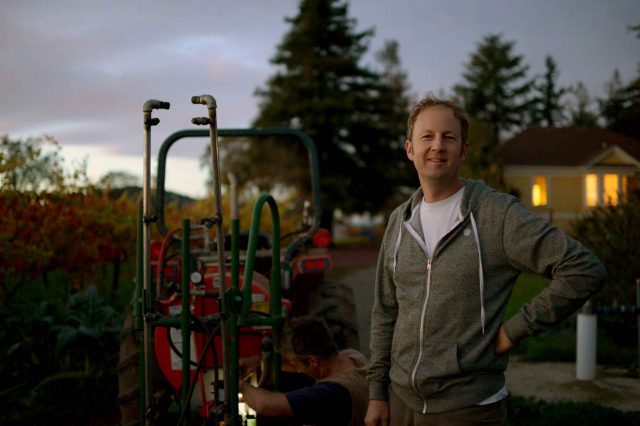This website uses cookies so that we can provide you with the best user experience possible. Cookie information is stored in your browser and performs functions such as recognising you when you return to our website and helping our team to understand which sections of the website you find most interesting and useful.
‘It’s a myth that you can’t feed the world with organics’
“It’s a myth that you can’t feed the world with organics,” says a Napa winemaker who tripled his yields by eschewing synthetic fertilisers and weedkillers.

Speaking in a pre-recorded video that was shown for the first time at a California Wines press tasting in London yesterday, Steve Matthiasson, who is the owner and winemaker at Napa’s Matthiasson Wines, said that his Chardonnay vines were more productive since making the switch to organic farming practices.
Not only that, but the resulting wines were better, and more balanced since eliminating fertilizers and weedkillers and “getting the root health back again”, he stated during the video, which was produced to draw attention to California’s strict labelling laws and organic requirements.
Speaking further about his Chardonnay plot, which Matthiasson took over 10 years ago, he said that it had been “run right into the ground over a 30-year process, using fertilizers and weedkillers and irrigation.”
Continuing, he recorded, “We converted it to organics when we took it over, and with just compost and cover crops we were able to bring this vineyard back and triple the yields.”
He also said, “We brought the vines back to life again and it’s been consistently producing great Chardonnay at a lower alcohol than it was before, even though the fruit is riper… the clay soil needed to be unlocked.”
Showing a red wine next, Matthiasson pointed out that organic farming can be key to creating ripe Cabernet Sauvignon without excessive sugars and therefore very high alcohol levels.
“We know that Cabernet can be really rich and ripe and powerful from Napa Valley,” he began. “But with organic farming and a lot of attention on the vines, from pruning, and fruit load and canopy management, and organic and sustainable practices to get a healthy root system, you get phenolics and tannins that are lush and soft before the sugars come up – so you get elegance and vibrant acidity with low alcohol,” he recorded.
So, he said that it was also untrue to say that ripe Napa Cabernet had to have a high alcohol level.
“It’s a myth that all of the Cabernet in our region is super high alcohol, big and jammy, that’s a style, but with organic farming we can pull that back and get natural balance in the wines,” he said.
Read more

